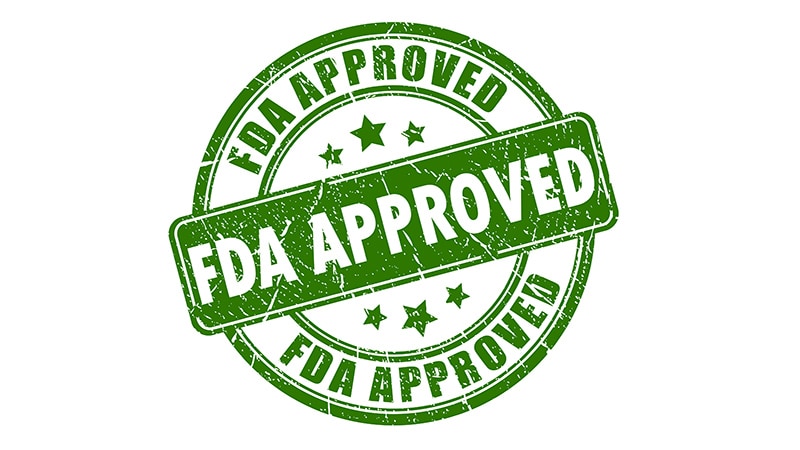TOPLINE:
Cancer drugs with higher clinical benefit in pivotal trials and without major safety concerns achieve full US Food and Drug Administration (FDA) approval more quickly. Drugs demonstrating substantial benefits in confirmatory trials, including overall survival improvements, convert from accelerated to full approval in median 2.15 years vs 3.70 years for those without such benefits.
METHODOLOGY:
- The accelerated approval program was created in 1992 to expedite FDA drug approval for life-threatening conditions based on surrogate measures deemed reasonably likely to predict clinical benefit. The program has facilitated market access approximately 3 years earlier than traditional approval, though delays in completing confirmatory studies have raised concerns about exposing patients to clinical and financial risks. Recent legislation through the Consolidated Appropriations Act of 2022 granted the FDA authority to mandate confirmatory studies prior to approval or within specified timeframes.
- Researchers analyzed 102 cancer drug indications granted accelerated approval by the FDA between 1992 and 2022 that were converted to regular approval by August 31, 2024, examining pivotal and confirmatory trial characteristics, outcomes, and safety data.
- Analysis included assessment of clinical benefit using the European Society of Medical Oncology-Magnitude of Clinical Benefit Scale (ESMO-MCBS) for pivotal and confirmatory studies, with high benefit defined as grade A or B for curative intent trials and 4 or 5 for palliative intent.
- Investigators evaluated factors at accelerated approval including regulatory pathways, pivotal trial characteristics, safety data, confirmatory study status, and clinical benefit measures to determine association with time to full approval.
- Data accuracy was verified through independent review by multiple investigators, with discrepancies resolved through discussion.
TAKEAWAY:
- Priority review designation was associated with faster conversion to full approval, with median time of 2.90 years vs 5.11 years for regular review (P = .002).
- Indications with confirmatory trials ongoing at accelerated approval showed shorter completion times (median, 2.78 years) than those without ongoing trials (median, 5.59 years; P < .001).
- Drugs demonstrating high clinical benefit in confirmatory trials achieved faster conversion (median, 2.34 years) than those with intermediate or low benefit (median, 3.91 years; P < .001).
- Presence of boxed warnings at accelerated approval was linked to longer conversion times (median, 4.61 years vs 2.90 years; P < .001).
IN PRACTICE:
“Drugs with shorter intervals from accelerated approval to completion of confirmatory studies demonstrated higher pre-accelerated approval clinical benefits and substantial clinical benefits in confirmatory trials…In these cases, important drugs are being made available earlier for the benefit of patients. However, for the remaining indications, the FDA must work to minimize the duration during which patients and physicians use drugs approved via accelerated pathway without robust data on their efficacy and safety,” the authors of the study wrote.
SOURCE:
This study was led by Ariadna Tibau, MD, PhD, Program On Regulation, Therapeutics, And Law, Division Pharmacoepidemiology and Pharmacoeconomics, Department of Medicine, Brigham and Women’s Hospital and Harvard Medical School, both in Boston. It was published online on March 26 in JAMA Network Open.
LIMITATIONS:
The researchers acknowledge several key limitations, including the exclusion of recent accelerated approvals granted only 1-2 years before the study end period and ongoing confirmatory trials, which may limit the generalizability of the findings. Additionally, the researchers expanded the definition of clinical benefit beyond the original ESMO-MCBS versions to include an intermediate category, as only 12% of pivotal trials supporting accelerated approvals demonstrated high clinical benefit. The study was also constrained by limitations in publicly available data for identifying certain confirmatory studies.
DISCLOSURES:
This study was supported by grants from the Kaiser Permanente Institute for Health Policy. Tibau disclosed receiving travel support from Daiichi Sankyo and Novartis, and speaking fees from Lilly, Daiichi Sankyo, and Novartis outside the submitted work. Additional disclosures are noted in the original article.
This article was created using several editorial tools, including AI, as part of the process. Human editors reviewed this content before publication.
Source link : https://www.medscape.com/viewarticle/faster-cancer-drug-approvals-tied-clinical-benefits-2025a1000773?src=rss
Author :
Publish date : 2025-03-26 15:05:00
Copyright for syndicated content belongs to the linked Source.
